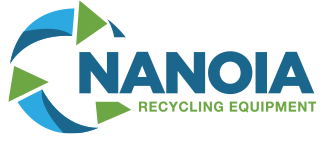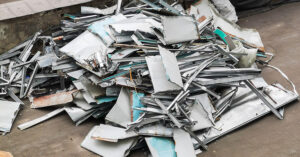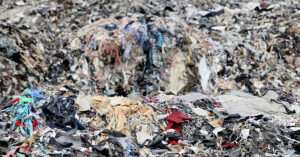Safety should be a top priority in any workplace, especially when it comes to operating heavy machinery like balers.
Balers are essential tools in the recycling and waste management industry, compressing materials such as cardboard, plastic, and metal into compact, manageable bales.
However, if not used properly, they can pose significant hazards to operators and other workers. Understanding the common risks and implementing a comprehensive baler safety checklist can prevent accidents and ensure a safe working environment.
Understanding Your Baler
Before diving into safety protocols, it’s crucial to understand the type of baler you’re working with. Balers come in various forms, including vertical, horizontal, auto-tie, and two-ram balers.
Each type has its specific operating procedures and safety measures. Familiarize yourself with your baler’s key components, such as the hopper, chamber, platen, and control panel, to better understand how to operate it safely.
Pre-Operation Safety Checklist
A pre-operation safety checklist is an essential tool to ensure your baler is in good working condition before use. Start by inspecting the area around the baler for any obstructions or hazards.
Check the baler’s physical condition for signs of wear or damage, and ensure all safety guards and devices are in place and functioning correctly. This proactive approach helps identify potential risks before they lead to accidents.
Operational Safety Procedures
Proper operational safety procedures are crucial for preventing accidents during baler use. Follow these guidelines:
- Proper loading techniques: Ensure materials are evenly distributed and do not overload the baler.
- Operating controls: Familiarize yourself with the baler’s controls and use them as instructed in the manual.
- Emergency stop procedures: Know how to quickly shut down the baler in case of an emergency to prevent injuries or damage.
Maintenance and Servicing
Regular baler maintenance and servicing are vital for keeping your baler in optimal working condition and ensuring safety. Adhere to the manufacturer’s recommended maintenance schedule, and pay special attention to hydraulic and electrical systems, which are critical for safe operation.
Always use qualified professionals for servicing to maintain the integrity and safety of your equipment.
Training and Awareness
Proper training for operators is non-negotiable when it comes to baler safety. Ensure all personnel operating or working near the baler are adequately trained and aware of potential hazards.
Ongoing safety education helps keep everyone informed about best practices and updates to safety protocols.
Safety Gear and Equipment
Personal protective equipment (PPE) is a must for anyone operating or working near a baler. This includes safety goggles, gloves, ear protection, and steel-toed boots.
Additionally, ensure your workspace is equipped with safety signage, warnings, and fire safety equipment to enhance overall safety.
Incident Response and Reporting
Despite all precautions, accidents can still happen. It’s important to have a clear incident response plan in place, including steps to take in case of an accident, documentation and reporting procedures, and a process for reviewing and updating safety protocols based on incidents.
Legal and Compliance Aspects
Staying compliant with regulations such as those set by the Occupational Safety and Health Administration (OSHA) is not only a legal requirement but also a key component of baler safety.
Ensure your operation adheres to all relevant regulations, keeps accurate records, and understands the implications of liability and insurance.
Conclusion
Implementing a comprehensive baler safety checklist is essential for preventing accidents and ensuring a safe working environment.
By understanding your baler, conducting pre-operation checks, following proper operational procedures, maintaining and servicing your equipment, providing training, using safety gear, having an incident response plan, and staying compliant with legal requirements, you can create a culture of safety that protects your employees and your business.
Choose Nanoia Recycling Equipment for Custom Solutions
At Nanoia Recycling Equipment, we understand the importance of safety in your recycling operations. Our expertise in providing safe and efficient baler solutions, coupled with our comprehensive services from design to repair, makes us the ideal partner for your business.Contact us today for a custom solution tailored to your needs.






